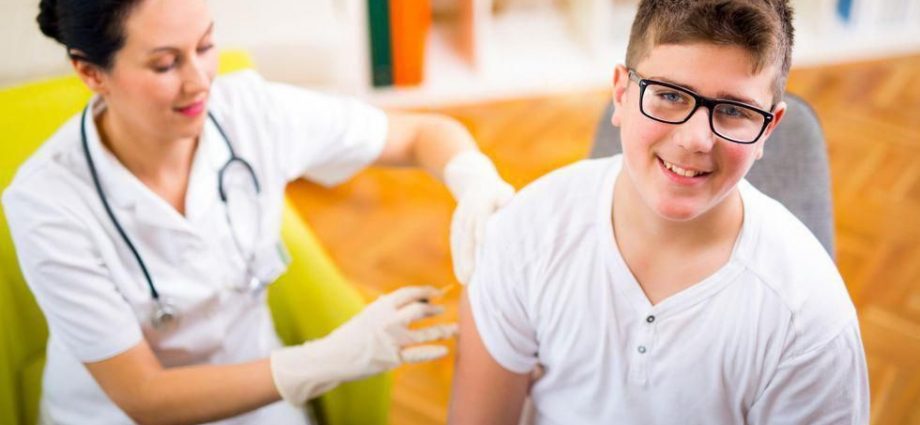THURSDAY, Aug. 12, 2021 (HealthDay News) — With COVID case counts surging as the school year begins, new research showing that the Moderna vaccine is safe and effective for teens should reassure parents who are on the fence about the shots.
“Large trials in adults and smaller trials in adolescents show that this vaccine is effective and safe, and outside of these trials, hundreds of millions of people have received the COVID-19 vaccine, and we are not seeing any smoking gun,” said Dr. Michael Smith, a professor of pediatrics at Duke University School of Medicine in Durham, N.C. He had no ties to the new research.
Moderna has filed for emergency use authorization from the U.S. Food and Drug Administration to give the shot to adolescents aged 12 to 17, but has not gotten the nod yet. The Pfizer vaccine is authorized for use in children ages 12 and up. The U.S. Centers for Disease Control and Prevention recommends that everyone 12 and older should get vaccinated.
For the study, more than 3,730 teens received either two shots of the Moderna vaccine or placebo injections. Blood tests showed that the vaccine created an immune response similar to what has been seen in adults. Side effects from the shot were generally mild and included injection site pain, headache and fatigue, the study found.
None of the teens who received the vaccine got COVID-19, but there were four cases seen in the placebo group.
“The main message is that the Moderna vaccine is safe and effective in teens aged 12 to 18,” said study author Dr. Gary Berman, a principal investigator at Clinical Research Institute, Inc. in Minneapolis.
The findings were published online Aug. 11 in the New England Journal of Medicine.
The study was only supposed to have 3,000 teens, but the response to the call for participants was so overwhelming that the researchers included more teens, said study co-author Dr. Kashif Ali, a pediatrician in Houston.
The risk of not getting the COVID-19 vaccine far exceeds any risks seen with this vaccine in teens, he said. To get more kids vaccinated, the White House is now enlisting pediatricians to make COVID-19 vaccination part of back-to-school sports physicals and encouraging schools to host vaccination clinics.
“Over the last few weeks, with the spread of the Delta variant, we have seen that young adults including teenagers are susceptible to infection with COVID-19 and that two doses of this vaccine prevents hospitalization and death and is pretty good at preventing disease,” Smith added.
There have been reports of myocarditis or inflammation in the heart among young adults who received COVID-19 vaccines, but this appears to be very rare and most kids do very well with little to no treatment, he said.
There is no basis for any concerns about fertility or reproductive health after vaccination either, Smith said.
There are many myths about the vaccine that are floating through communities and on social media, said Dr. Claire Boogaard, a pediatrician at Children’s National Hospital in Washington, D.C.
“If parents are concerned about the safety or effectiveness of the vaccine or want to discuss particular myths, they can speak to their trusted pediatrician or physician to get their questions answered,” said Boogaard, who wasn’t part of the study.
Don’t delay this important conversation, she added.
“COVID-19 is generally a more mild infection in children/teens, however, there are cases of hospitalization and death in children from the virus, a large contingent of teens with long COVID-19 symptoms that persist for weeks or months after infection, and some develop multi-system inflammatory syndrome [MIS-C], where different organ systems in the body become inflamed and, at times, collapse, which can be life-threatening,” Boogaard explained.
More information
The American Academy of Pediatrics offers more information on COVID-19 vaccines for kids and teens.
SOURCES: Michael Smith, MD, professor, pediatrics, Duke University School of Medicine, Durham, N.C.; Gary Berman, MD, principal investigator, Clinical Research Institute, Inc., Minneapolis; Kashif Ali, MD, pediatrician, Houston; Claire Boogaard, MD, pediatrician, Children’s National Hospital, Washington, D.C.; New England Journal of Medicine, Aug. 11, 2021, online
Copyright © 2026 HealthDay. All rights reserved.

